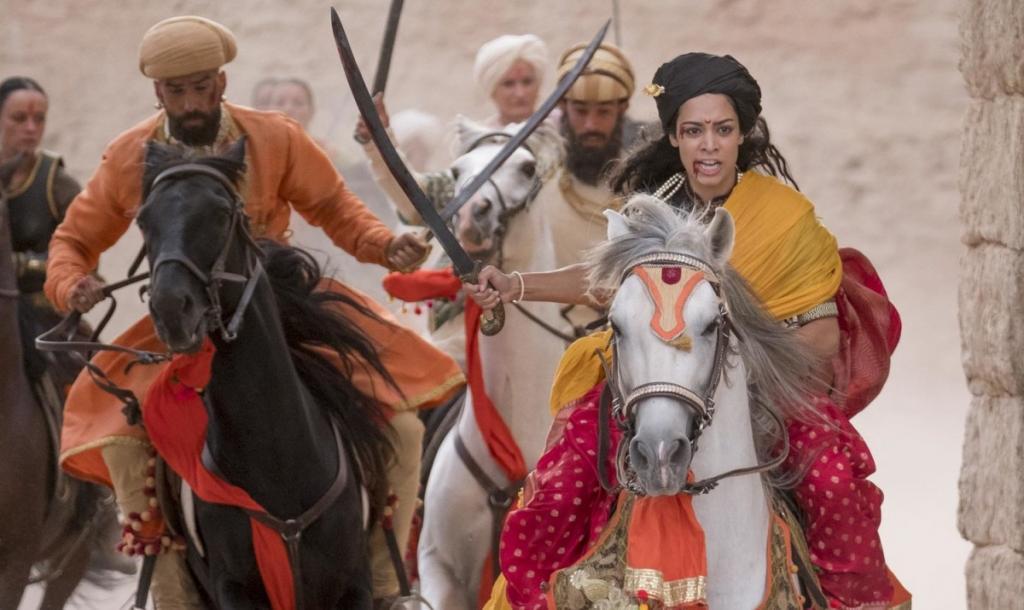The wait has been an extensive one with post-production, a social media campaign and exclusive event screenings, but the word is now out for Cayenne Pepper Productions CEO, renowned choreographer and dancer Swati Bhise’s directorial debut, The Warrior Queen Of Jhansi.
Roadside Attractions has snagged U.S. release rights to the film for a Fall release via Deadline, titularly starring Devika Bhise in this, the latest cinematic incarnation of 19th century warrior queen Lakshmibai. The director, who also executive produced Matthew Brown’s 2016 biopictoral novel adaptation, The Man Who New Infinity, also produced as well as co-wrote the film with her star, along with co-scribe Olivia Emden.
Formerly titled Swords & Sceptres, Bhise’s The Warrior Queen Of Jhansi tells the true story of Lakshmibai, the historic Queen of Jhansi who fiercely led her army against the British East India Company in the infamous mutiny of 1857.
Lakshmibai is known as one of the most prominent figures within the independence movement of India. The passion to free her country from colonial rule led this young woman to become one of the greatest generals of the Indian army, and to go down in history for her bravery, strategic acumen, and as a force to reckon with by the East India Company and the British Raj.
Rounding out the cast are Rupert Everett, Derek Jacobi, Ben Lamb, and Jodhi May star with veteran Hindi actors Yatin Karyekar, Milind Gunaji, Ajinkya Deo, and Arif Zakaria.
“The Warrior Queen of Jhansi” centers on the Rani of Jhansi, who led led her people into battle against the British Empire in 1857. Her insurrection shifted the balance of power in the region and set in motion the demise of the British East India Company
“Women have often changed history, but their sagas are rarely told,” said Bhise. “It’s a rare honor to present a female Asian lead in western cinema, and more so since the Rani was an ordinary woman, yet she defied gender norms and set an example of empowerment for all women.”

